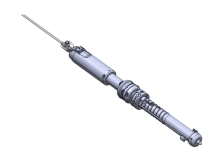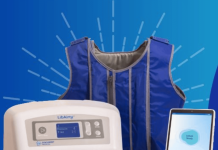CathVision, a medical technology company developing innovative electrophysiology solutions to enhance clinical decision-making in the EP lab, announced initial patient enrollment of a follow-on clinical study to demonstrate the value of the Signal Complexity™ algorithm at OLV Hospital Aalst in Belgium led by Dr. Tom De Potter.1 The first patient has been enrolled.
More than 46 million patients worldwide are estimated to suffer from atrial fibrillation (AF). As prevalence increases due to health factors such as obesity, hypertension, and physical inactivity, it is anticipated that as many as 1 in 3 individuals older than 40 will experience AF. Seventy-five percent of all AF patients have persistent or permanent forms of AF; freedom from AF at 12 months following therapy is usually found to be approximately 50 percent demonstrating the opportunity to integrate technology that can improve effectiveness.
“When an ablation procedure starts and ends in AF rhythm, delivering a lasting therapy impact on AF cannot be accurately visualized in-procedure today,” said Dr. Tom De Potter, FEHRA, Associate Director, Cardiovascular Center, Department of Cardiology, Electrophysiology Section, OLV Hospital, Aalst. “It is often difficult to understand if the ablation strategy is progressing positively. This has an impact both on the duration and on the outcome of the procedure. There is outstanding value in integrating a reliable solution that affirms the ablation impact.”
RELATED: Virgo and CTNx Partner to Power GI Clinical Trials
The Signal Complexity algorithm is designed to measure and visualize rhythm parameters such as cycle length, variability, fractionation, and dominant frequency in real time and track the progress of ablation during persistent atrial fibrillation (AF) procedures. The algorithm provides automated analyses of high-fidelity, low-noise cardiac data from the ECGenius System™, CathVision’s innovative EP recording technology, that can help physicians improve clinical outcomes and efficiency.2 Dr. De Potter will specifically assess the clinical utility of Signal Complexity to analyze the impact of ablation therapy in coordination with pulmonary vein isolation (PVI) plus individually mapped ablation targets.
Signal Complexity is part of CathVision’s CARDIALYTICS™ suite of artificial intelligence-powered analytics, currently in development.3 The CARDIALYTICS suite includes Signal Complexity, PVI Analyzer™, and FaST Mapping.4 In November of 2022, CathVision announced the clinical evaluation of the Signal Complexity algorithm at NYU Langone Health; 28 patients have been enrolled to date. Data will be presented at the upcoming Heart Rhythm Society meeting in New Orleans.
“We remain committed to providing clinicians with substantiated value,” said Mads Matthiesen, CEO of CathVision. “It’s exhilarating to observe the accumulation of clinical evidence supporting the need for the ECGenius System and CARDIALYTICS suite as we look forward to strategic progression that will cement a new era of EP recording systems.”
For more information about CARDIALYTICS and the ECGenius System, please visit www.cathvision.com.
About CathVision
CathVision is a medical technology company that develops electrophysiology solutions centered around an innovative EP recording system and AI algorithm platform – the ECGenius System. Committed to empowering physicians to make more informed clinical decisions in the EP lab, CathVision is redefining the necessity of exceptional cardiac electrical signals to diagnose, characterize, and treat the most common heart rhythm disorders. CathVision was founded in 2013 and is headquartered in Denmark with a U.S. office in Minnesota.




